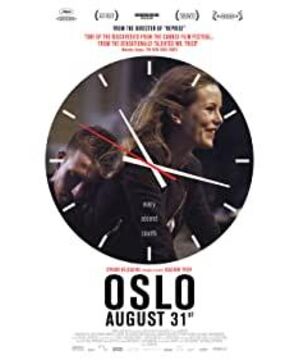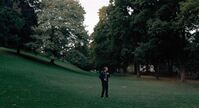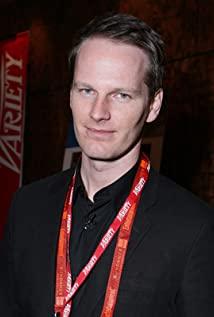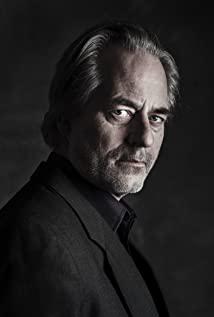"Oslo August 31" is a unique movie. It outlines another kind of person in the world.
In Oslo's most beautiful August, the sun disperses the polar night. There is no snow, no cold rain, this is the season that Oslo people look forward to most of the year.
As part of the drug rehabilitation program, Anders, a drug addict, will leave the drug rehabilitation center on this day to visit old friends and interview for work.
Old friend Thomas has already started the kind of life that "everyone wants you to live". The imperceptible waves on the table, the heart-to-heart conversations on the hills and green spaces, everything seems to be very good. But Thomas is no longer a "brother", he has become a "friend". Anders doesn't know what he wants, but it certainly won't be sympathy, encouragement, or exhortation.
Anders personally messed up the interview at Frio newspaper. His resume, his judgment, and even his "girlfriend in New York" and contacts have almost become the key to the newspaper to open the English market. But frankly confessing the unbearable experience after 2005 dragged him back to reality. He became a special care recipient under the "non-discrimination principle", and he did not need such treatment.
There are also some fait accommodating "treatments" that he does not need: for him, his parents sell the house to pay off the debt; for him, his sister Nina gives up the share of the house; for him, Nina hopes that her gay girlfriend "escorts" her brother home. Every relative forgave him, every relative did not see him, and every relative had his own life. This liberal intellectual family advocates rationality, loves art, encourages diversity, pays attention to public ethics, cares about human beings, and pays attention to privacy. This family is so perfect that it cannot be touched, and it is so remote that it is a stranger.
The birthday party of Kahler and Miriam was warm and familiar. There is beer and champagne, a bit of carnival until now, and there is a sense of laughter, and the smile and acceptance of friends are as always. Even Anders and Miriam kissed secretly as always. A happy family is "what everyone hopes for": give birth to many children and create many topics; meet regularly to share happiness; keep each other's secrets, and then nothing happens. Bored and happy, Anders never wanted to get involved, and now it's even more impossible.
The only possibility is to buy a gram of heroin in the hands of the medicine head and enjoy the wine in the Robinette Bar. He couldn't wait for a call from his ex-girlfriend Iselin, but it didn't matter anymore. A medical girl told him with a kiss that he had not lost the power to attract women. The girl has vigorous enthusiasm and slightly puckered lips. They fly in the streets in the early morning and swim in the early morning pool. As long as he stretches out his hand, Eros will still take care of him.
Anders still gave up.
The sound of the piano is like a farewell chant. Xi Wei walked through the curtains, and Anders chose to float in the morning of August 31st in Oslo.
Some people are the pigs and dogs of the black world, the ants of the red world, the clowns of the blue world, the victims of money worship, and the superfluous people of elitism. These people are frequent visitors in literary and artistic works, they are the cases that intellectuals pay close attention to, and they are the objects of award-winning works or the description and research of first-line journals.
Anders does not belong to them, he is another kind of person in the white world. He couldn't find injustice to fight against, misfortune to cry out, and anxiety to avoid. I can't even find unbeautifulness that can be disgusting. Oslo is like a well-functioning clock. Between the magnificent mountains and the sea, it flows day and night, and the world is peaceful. In this Oslo, pain, sadness, and anger have become so redundant.
One day, the world will evolve to a high degree of civilization. Liberalism makes barbarism and oppression a thing of the past, and humanism makes discrimination and prejudice lose soil. When this day comes, will our pain and anger decrease? What form will our sorrow and loneliness take? Are our feelings of alienation, emptiness, and powerlessness unable to gain universal attention within the perceptual range of the crowd?
Hallucinogens and suicide have never belonged to the world outside Oslo. They comfort every soul who has lost weight.
End of the film: In the early morning, sunlight is projected on the glass curtain wall of Holmenkollen Mountain Villa. The tram Ding Dong passed by, and the pedestrian lights were lit green. The outdoor parasol is raised in the Appente Baking House, and the barista unscrews the steam jet. The automatic door opened, welcoming the first customer in the morning running suit.
It's just that Anders will never sit here again, listening to people talking about marriage, children, music, and dreams. He is another kind of person, a person whose pain is not recognized.
Fortunately, this film was shortlisted for the "A Concern" section of the 2011 Cannes Film Festival.
View more about Oslo, August 31st reviews










